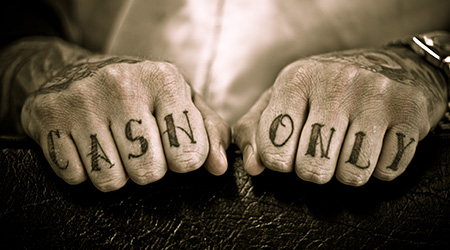How To Not Use Your Credit Card

The wonderful thing about credit cards is their immediate use and instant gratification allowing impulse purchases. While it can be beneficial to use a credit card when stumbling across a great sale for that once-in-a-lifetime purchase, they are rarely used in this manner. More often than not credit card use becomes excessive and many forget, much like the code of superheroes, that with great power comes great responsibility. It is important to break the cycle of behavior which leads to excessive debt with many consumers filing for bankruptcy as a direct result. There are certain steps you can take to not use your credit card.
The easiest thing to do to prevent yourself from using a credit card is to become a cash only consumer. What this means is that when you go to the grocery store or gas station you can only purchase what you have in cash on hand. This might seem extremely limiting at first because most consumers are not used to planning their purchases ahead of time but with a little practice it becomes easier. Not using a credit card and instead using cash normally works hand-in-hand with establishing a budget. When going to the grocery store, if you already allocated $200 per month for groceries then instead of using a credit card and running the risk of going over your allotted budget take $200 in cash instead. By limiting yourself to cash purchases only you limit your ability to spend more than you need by making impulse buying decisions.
Sometimes having cash on your person is not enough to mitigate impulse buying behaviors. It is still possible to go shopping and see a 75% off sign and think even though I don't have the cash I still have my credit card. Some consumers benefit greatly from taking the credit cards out of their wallet altogether. Is recommended by many financial consultants and debt counselors to take your credit cards out of your wallet in place them in a location your sure to remember but is inconvenient to get to. One amusing recommendation is to take your credit card and put in a bag with water and place it in the freezer. Once your credit card is frozen in place the belief is that because it is onerous to retrieve your card it is likely to stymie impulse purchasing decisions. You either have to wait for it to thaw or get a hammer to free your credit card from its frozen prison. Another suggestion is to leave your credit cards with a friend or family member so it is still available but it is out of reach. The goal is to make it difficult for yourself to make impulse purchases either at the mall or online by limiting access to your credit card.
If carrying a large amount of cash makes you uncomfortable or just isn't realistic another alternative is to carry a debit card or check card. These types of cards, while similar to credit cards in form, function differently because they only allow you to withdraw what you have available in your checking account. This allows consumers to have the best of both worlds by letting them make purchases at any place that accepts credit cards but limiting their purchasing power to what they have available in their checking. Since these cards withdraw directly from a checking account it may be prudent to inquire about overdraft protection with your bank or credit union in case you accidentally make a purchase larger than you have available in checking.
If the aforementioned suggestions fail to prevent you from using your credit card then as a last resort it is recommended to cancel all but one credit card. While canceling credit cards will negatively impact your FICO credit score it is still preferable to racking up tens of thousands of dollars in credit card debt. With your remaining credit card, contact the financial institution to have them lower your available line of credit from its current amount to $1,000 or $2,000. This credit card should be considered for emergency purposes only such as an unforeseen medical or automotive expense. Again, this isn't recommended for all consumers but is meant to protect people from themselves if they have an uncontrollable urge to purchase items they don't want or don't need just because it's easy to do.
These are just a few suggestions on how to not use your credit card but there are many more creative options available for consumers to consider. Regardless of which solution you choose the end goal is to make it less convenient to make credit card purchases as excessive amounts of credit card debt can lead to financial collapse and bankruptcy. In the long run, not having immediate access to a credit card is much more preferable than 10 years of bad credit by having a bankruptcy appear on your credit report. Sometimes a little sacrifice goes a long way if it means staying on the path to financial security and stability.
Elsewhere on StockMonkeys.com






